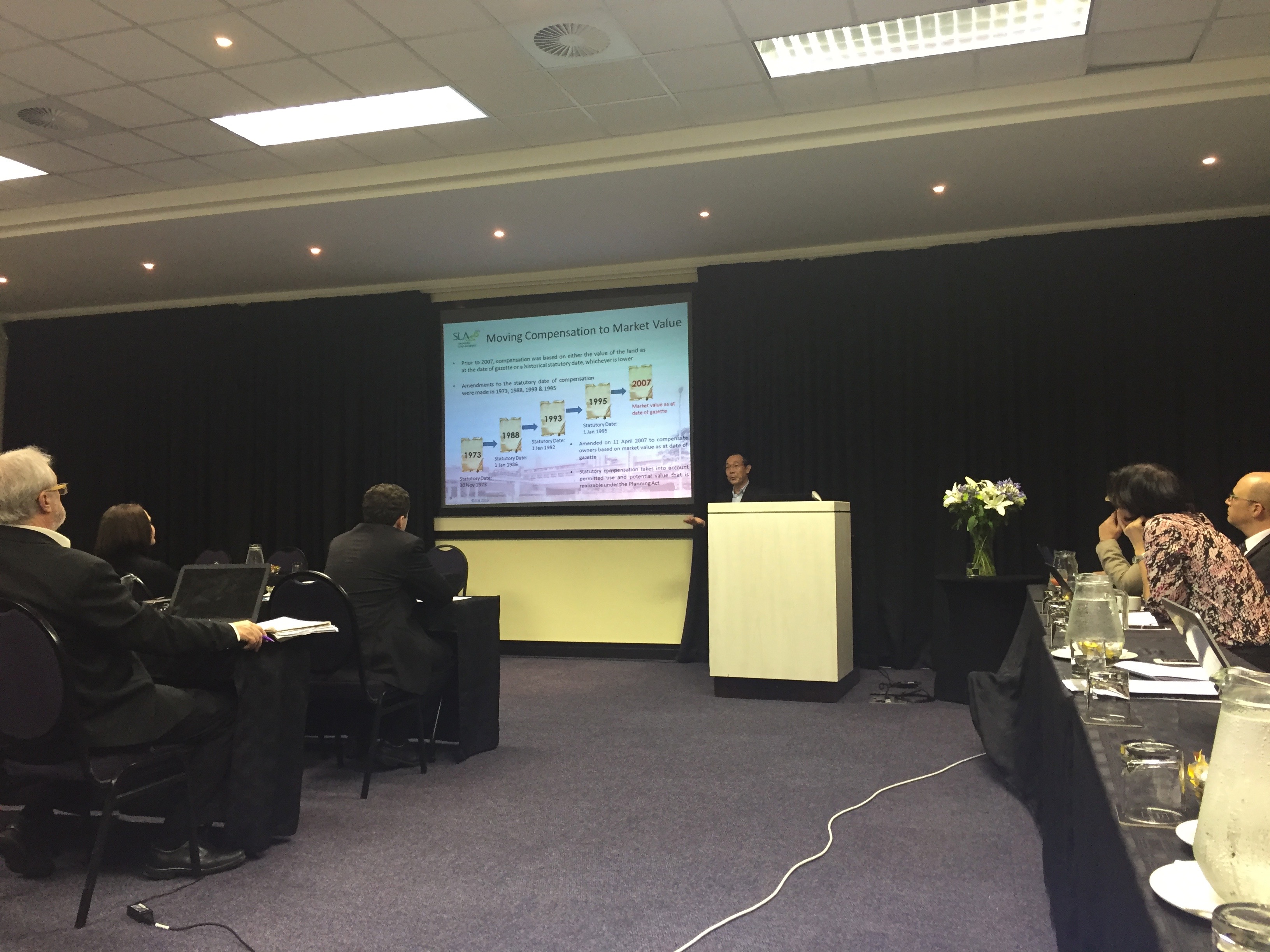SESSION 4: FACTORS OF COMPENSATION; VALUE OF LAND
Dr Shai Stern (Dr. Shai Stern (Professor of Law, Bar-Ilan University)
Restoring Justice in Expropriation Law
- There is general agreement on the concept of fair or just market value for compensation, yet this concept is based on different ideas of justice
- A Restorative conception of justice provides a coherent and circumstances’ attentive normative framework to address the most significant challenges related to compensation
Mr Nicholas Tagliarino (Land Portal Foundation, University of Groningen)
Avoiding the Worst-Case Scenario: Whether Indigenous Peoples and local communities are vulnerable to expropriation without compensation
- Nicholas's original set of indicators measures how national laws performs against the international standards defined in the FAO Voluntary Guidelines on the Responsible Governance of Tenure
- 23 out of 30 countries included in the analysis grant compensation when land rights are formally recognised and registered, however several factors undermine the ability of local communities and indigenous people to have their land rights formally recognised
- Vulnerable communities should be eligible for compensation even without formal registration
Dr. Mike McDermott (Managing Director, Global Property Advisory)
Market value when there is no Market: Eesh, hawu, what to do?
- How is it possible to evaluate the market value of land where there is no market at all? This is not an exceptional situation; it is a recurrent setting in many countries
- Ultimately, the market value comes from the social imaginary of a given community
- In absence of market values, (local) value juries are better suited to evaluate land since the share the specific imaginary related to land with the particular community affected
Mr Simon Ong (Deputy Chief Executive (Land, Corporate, Geospatial & Data), Singapore Land Authority /Commissioner of Lands)
Land Acquisition in Singapore
- Compulsory land acquisition in Singapore’s transition from a rural settlement to a modern city state.
- The Land Acquisition Act was amended in 2007 to compensate affected property owners based on market value as at the date of gazette.
- Owners who are dissatisfied with the compensation award can lodge an appeal with the Appeals Board.
- Latest amendment in the Act allows the Government to acquire a specific stratum of airspace or subterranean space instead of the entire column of land.
SESSION 5: COMPENSATION IN THE CONTEXT OF REFORM
Prof Heinz Klug (Law Professor, University of Wisconsin)
Land Reform, Restitution and the Question of Compensation
- Compensation in the light of South African history: Who has been compensated? And, who is paying the compensation?
- The issue of restitution in post-apartheid South Africa was addressed adopting a market-led principle for compensation
- This market-led principle, however, prevented a more equitable distribution of land in the two decades since, mainly protecting the interests of formers pre-apartheid owners
- The question of redistribution of land is crucial and needs to be addressed in order to produce a more equitable society. A possible solution is a wealth tax designed to fund compensation and foster a redistribution that might produce a more sustainable system of property rights in the future
Ms Nina Braude (Candidate Attorney, Baker & McKenzie)
A “Uniform Procedure” for all Expropriations? Customary Property Rights and the 2015 Expropriation Bill
- The 2015 Expropriation Bill introduces a notion of “uniformity” that can be very dangerous, especially when property rights over land are diversified
- The Bill contemplates protection of customary tenure systems, but in the context of the common-law paradigm
- The Bill must provide an additional consultation procedure for instances of expropriations of communal land
Maartjie Van Eerd (Senior Expert, Housing & Social Development, IHS Erasmus University, Rotterdam)
The process & impact of development-induced displacement: acquisition, expropriation, compensation & resettlement in times of reform
- Development projects often cause displacement and resettlement that affects urban poor; In India only an estimated 60 million people have been displaced by developing projects
- Informal settlers often are not eligible for compensation and no form safeguard is available for this people
- When urban poor are displaced due to development projects, monetary compensation or resettlements proved to be not fair, nor effective: affected people must share the benefits of development project directly

